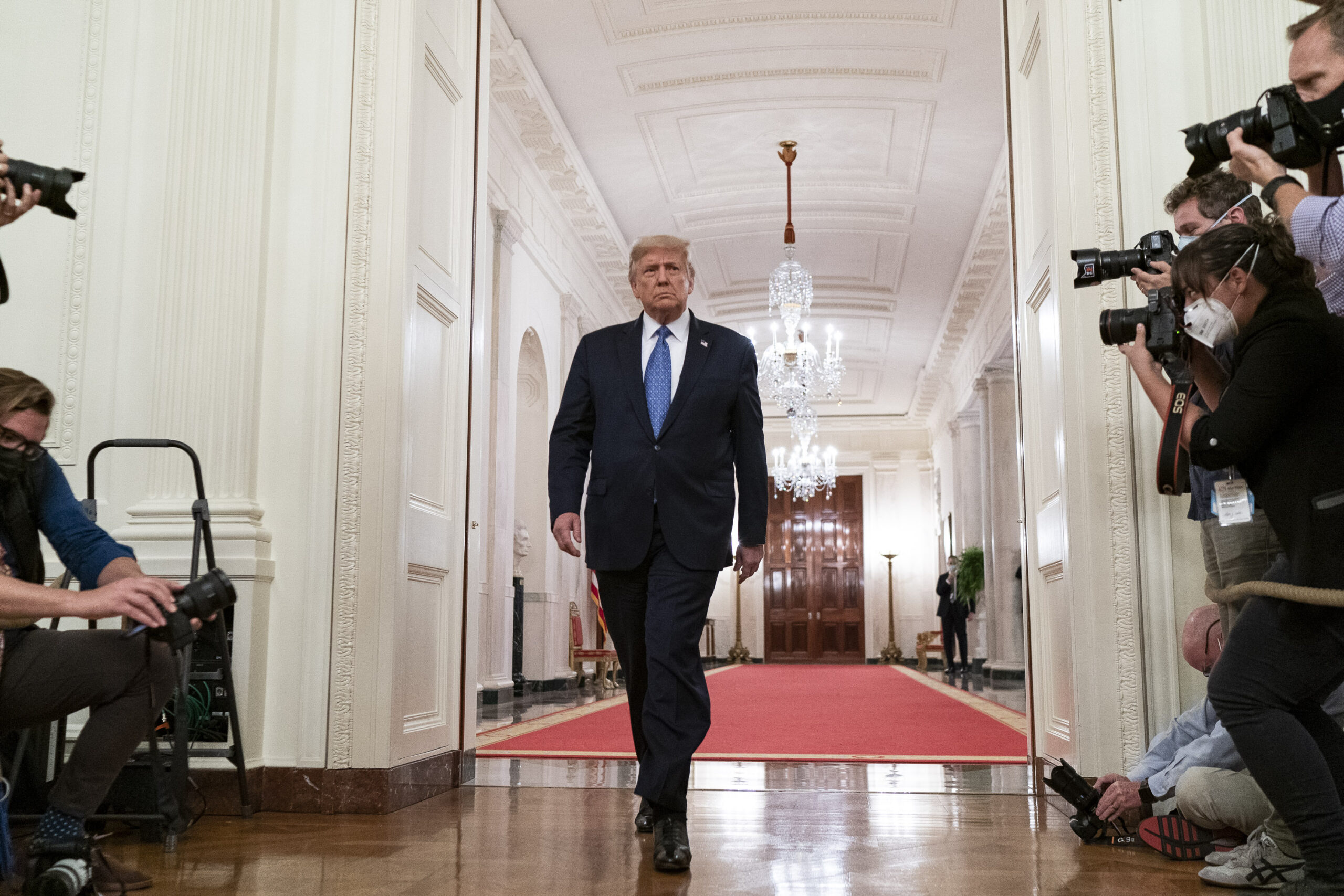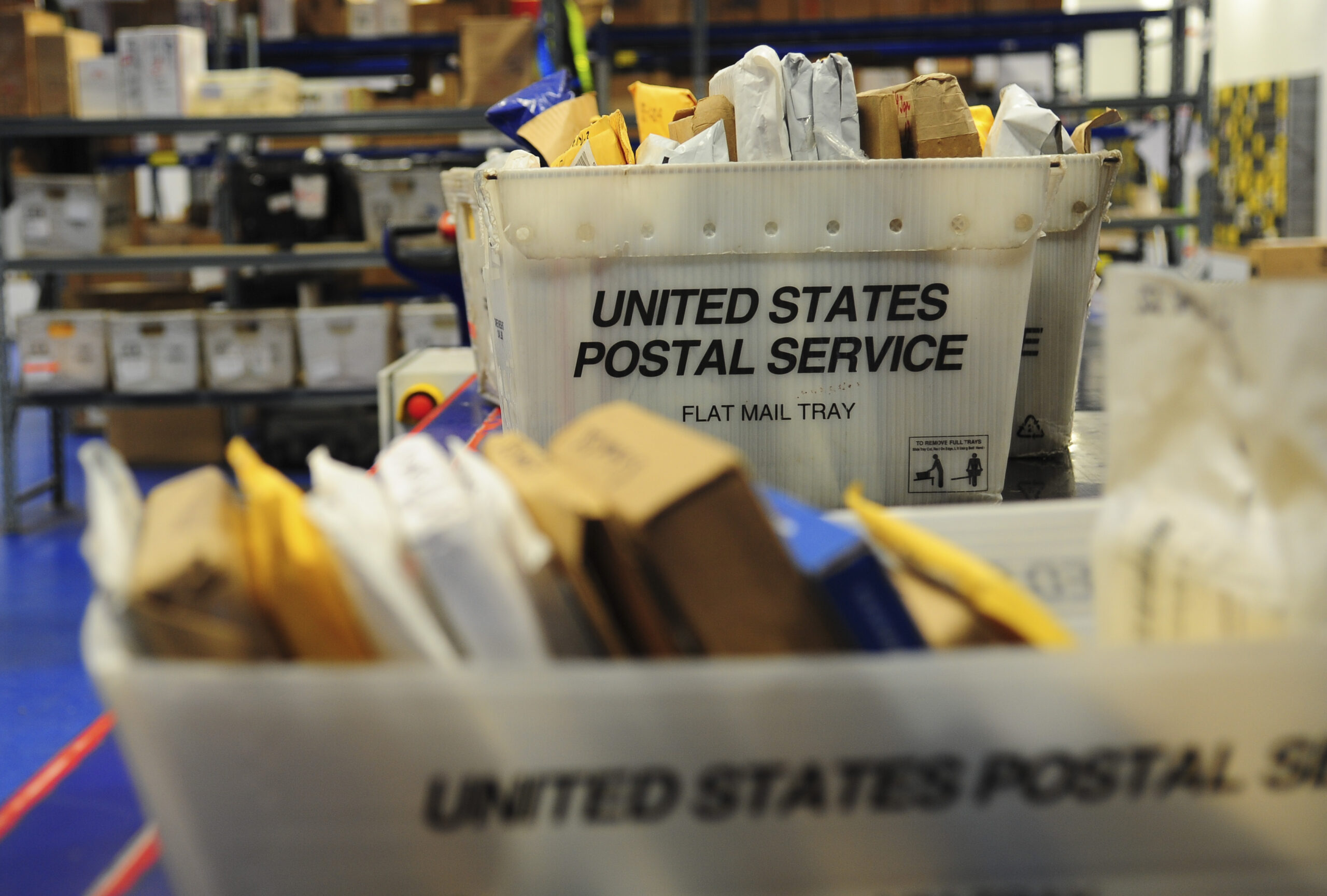
The Trump Administration’s Controversial ‘Operation Legend’ Program
In the summer of 2020, the Trump administration launched Operation Legend, a federal law enforcement program that dedicated hundreds of agents to “fight violent crime” in several U.S. cities, in what critics saw as a political effort to bolster the president’s “law and order” reelection campaign during a time of heightened unrest. American Oversight is investigating the Trump administration’s politicization of federal law enforcement resources and the origins and implementation of the program.

On July 8, 2020, Attorney General William Barr announced the launch of Operation Legend, a Justice Department initiative that assigned federal officers within local law enforcement jurisdictions to “fight the sudden surge of violent crime” in cities “plagued by recent violence.” The announcement came at a time when racial justice protests had been sweeping the nation, and was criticized as a scheme by then-President Trump to gain support as the “tough on crime” candidate during his reelection campaign. Many local officials in Operation Legend’s target states came out against the surge in resources and deployments in what was merely a rebranding of a pre-existing federal law enforcement mission called Operation Relentless Pursuit.
The Operation Legend program began with the deployment of more than 100 U.S. Marshals and federal agents to Kansas City, Mo., and was named after LeGend Taliferro, a 4-year-old boy who was shot and killed on June 29. In the weeks and months that followed, the operation was expanded to Albuquerque, Chicago, Cleveland, Detroit, Milwaukee, Memphis, St. Louis, and Indianapolis.
Two weeks after its launch, Barr falsely stated that Operation Legend had made 200 arrests in Kansas City, a claim that was quickly called into question by local authorities. The Justice Department later issued a correction: Those arrests were made through efforts by Operation Relentless Pursuit, which had also operated in Kansas City.
According to an Operation Legend final report announced by Barr on Dec. 23, his last day in office, two Justice Department offices spent roughly a combined $69 million for 290 federal officers in the nine cities. Barr also said that more than 6,000 arrests had been made “since Operation Legend’s launch” (although that number has not been confirmed) and that 1,500 defendants had been charged with federal crimes.
In 2020, American Oversight began investigating the origins and implementation of Operation Legend, including whether and to what extent it was used for political purposes during the final months before the election. We filed dozens of Freedom of Information Act and state and local public records requests for documents that could shed light on the program, including White House communications with local officials in Albuquerque, Chicago, Cleveland, Kansas City, and Milwaukee, as well as Justice Department records detailing how funding for Operation Legend was spent.
In August, we sent a FOIA request to multiple agencies, including the Justice Department, seeking the release of Operation Legend’s arrest records; in November, the U.S. Marshals Service (USMS) told us that it had no responsive documents.
Documents we uncovered in our investigation contained more than 250 forms related to the deputations of law enforcement officers. They also reflect the operation being a rebranding of Operation Relentless Pursuit: On July 30, 2020, a USMS official wrote in an email that the operation was “a continuation of [Operation Relentless Pursuit] even though it is now being referred to as Operation Legend.” And on Sept. 11, a USMS official noted in an email regarding Milwaukee deputations of local law enforcement, “These are for the group application for Operation Legend/ Relentless Pursuit.”
Other documents we obtained point to a lack of coordination with local officials in Operation Legend cities. In one email exchange from July 9 — the day after the operation was launched in Kansas City — White House intergovernmental affairs staffer William Crozer connected John Stamm, the Kansas City mayor’s chief of staff, with a Justice Department official, writing that Stamm “had some questions around Operation Legend.” This apparent lack of coordination occurred in other states targeted by Operation Legend. Emails we obtained from the Illinois governor’s office show that the office requested a meeting with then-acting Homeland Security Secretary Chad Wolf the day after the Chicago Tribune reported that 150 DHS agents would be sent to Chicago through Operation Legend. Wolf’s office said that he did not have time in his schedule, and that there was “no surge” of federal officers in Chicago.
American Oversight will continue to investigate Operation Legend’s politicized origins and how the program was undertaken. Among the records we are still seeking are directives and guidance about Operation Legend’s implementation and strategy from the Department of Homeland Security, as well as Justice Department communications and arrest and deployment records. We have also requested the release of communications sent between federal and local officials in several states and cities targeted by Operation Legend.


